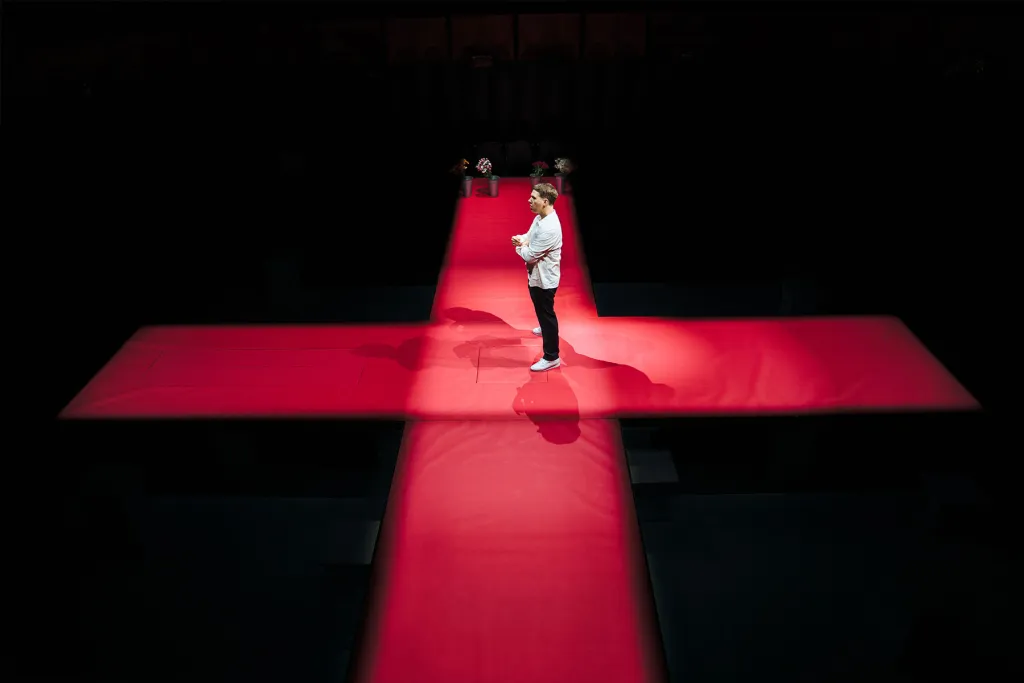
Apparently, ‘Death of England’ is a ‘critically acclaimed’ trilogy – that statement in of its own should have been a warning signal. “Scorching and fearless play which asks explosive and enduring questions about identity, race and class in Britain” I am told. But is asking difficult questions enough to make a play good? Not in my books, it is not.
I did enjoy the first thirty minutes or so of this 100 minute, no break monologue. And especially the clever use of props and lighting. But beyond that, the narrative descended into something that frankly I was struggling to follow or engage with. And this was not the actor’s fault. Thomase Coombes does give the performance his all – it is physical and passionate. However, with every passing minute I felt increasingly immunised against the dialogue. The constant swearing, for examples, ceased to illicit any kind of emotional response from me very quickly. It also made it highly incredible, when the c**t-wielding character suddenly made reference to Jason and the Golden Fleece.
Equally incredible was the entire concept of the father, a flower-seller, renting a room above an Indian restaurant with the sole purpose of having conversations with the proprietor whilst expanding his mind reading Dostoyevsky. And please can someone explain to me why his son is so obsessed about going through his deceased father’s internet search history? Most of the time, I was confused about the son’s age. He is divorced, but most of his actions seem more suited to an immature seventeen year-old.
In addition, if the structure is that of the monologue, the constant dialogue between Michael and other characters starts feeling somewhat schizophrenic and unnecessary. If it is one or two lines – sure, its an interesting device. When it is an entire dialogue, I failed to understand what purpose this served and whether we, the audience, would not have been better served by more actors.
Yes, some of the questions that were posited were good. I myself had only just asked my husband one of the very same questions the other day over the durations of the Euros – why the phrase “football is coming home” as if England had some god-anointed right to be winners of football tournaments. But I did not walk out of the theatre with even a semblance of an answer, other than a reference to football having been invented in England. Probably the most poignant moment for me was when the Jamaican mother of Michael’s friend Delroy makes the point that it will be her son, not Michael, who will shield most of the blame for the prank they played.
But that is not enough to make this a play that I would recommend. And I am somewhat deflated now at the prospect of seeing the other two plays, as obviously we bought tickets for the entire trilogy.